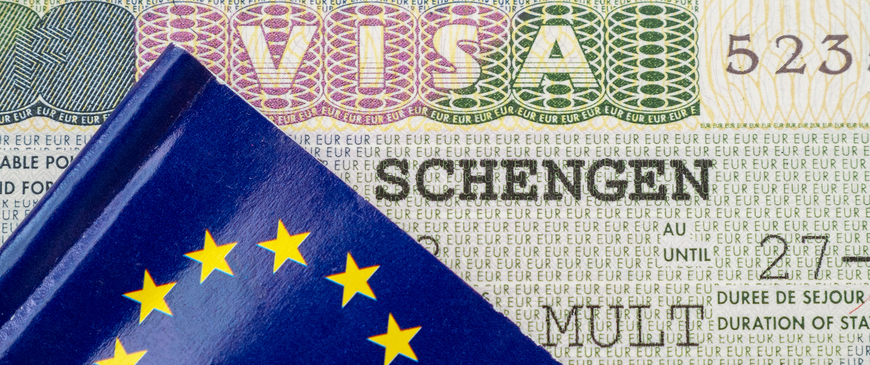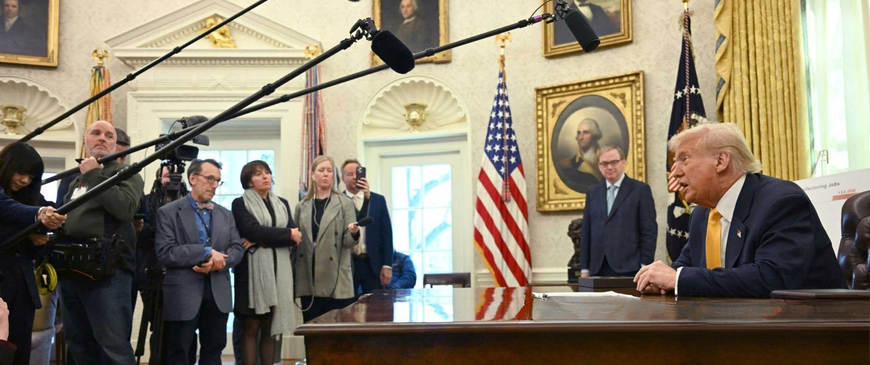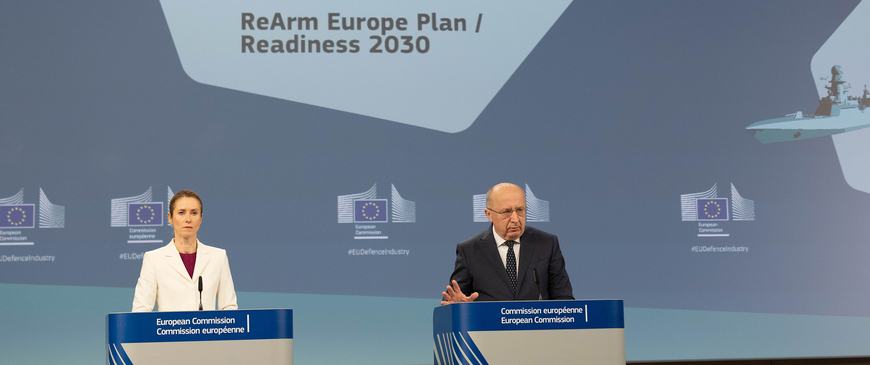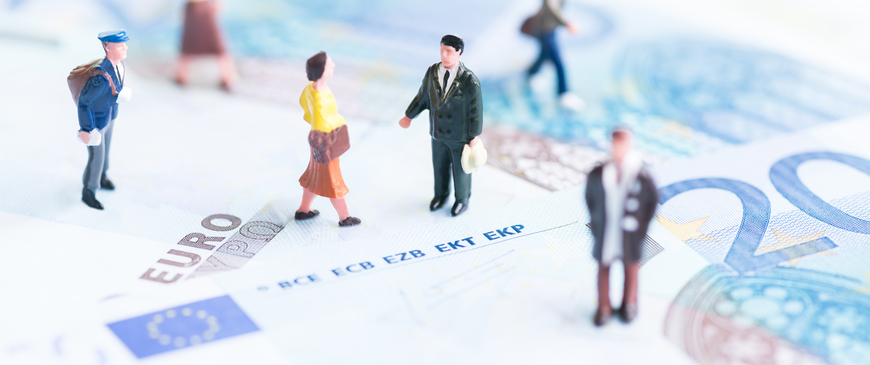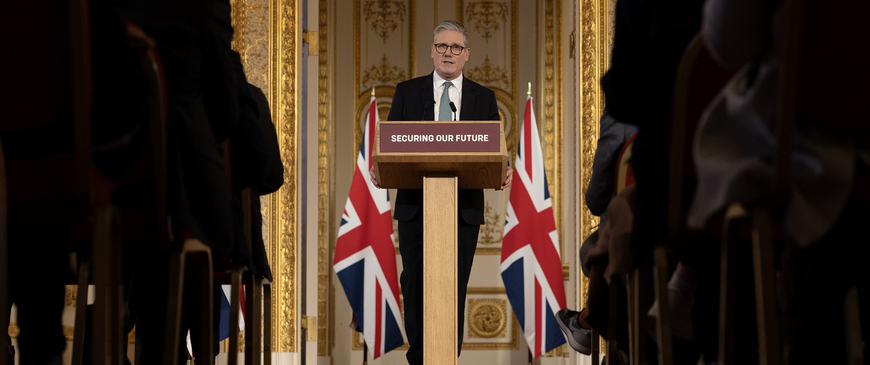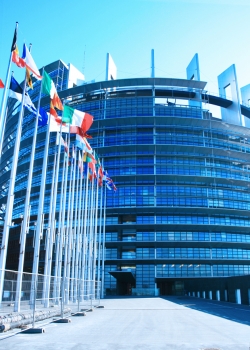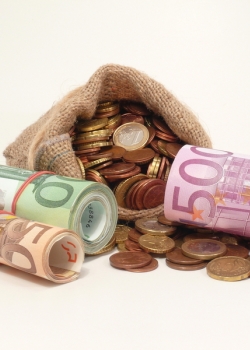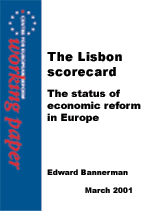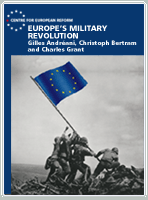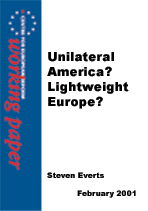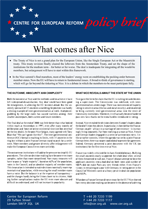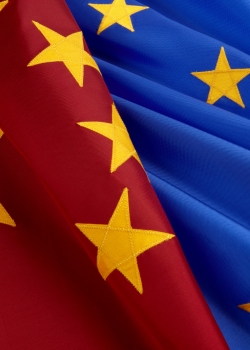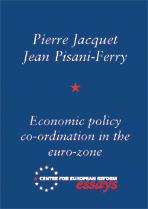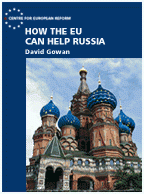Research
The stockholm scorecard
02 April 2001
The Stockholm European Council was supposed to focus on Europe's "new" economy and the goal of creating "the world's most dynamic and competitive knowledge-based economy by 2010".
An EU senate is superfluous
02 April 2001
The idea that the EU should create a second chamber for the European Parliament, composed of representatives from national parliaments, is a perennial favourite of member-state governments.
Don't legislate on consultation
02 April 2001
No-one who runs a business needs to be told that staff are a company's best ambassadors. There is ample evidence that a well-informed and motivated workforce can add value to the bottom line. Proper consultation is vital to ensuring long-term success. But if a firm wanted to improve its workforce...
Issue 17 - 2001
30 March 2001
- The stockholm scorecard, Edward Bannerman
- An EU senate is superfluous, Richard Corbett
- Don't legislate on consultation, James Wilson
The Lisbon scorecard: The status of economic reform in Europe
02 March 2001
It will be left to future historians to appreciate fully the significance of the Lisbon Summit of March 2000 in the economic evolution of Europe. But it is already possible to argue that its impact could be even more farreaching than that of the euro.
Europe's military revolution
02 March 2001
The creation of the single European currency, a revolutionary innovation for the European Union (EU), has provoked tumultuous debate across the continent and beyond. Yet the EU's plans for a common defence policy have - thus far - attracted less attention.
Unilateral America? Lightweight Europe? Managing divergence in transatlantic foreign policy
02 February 2001
The election of George W Bush as the new US President has caused uneasiness in Europe, both at the level of individual states and that of the European Union (EU). Bush has assembled an impressive team to work on foreign policy, including Colin Powell as the new Secretary of State,...
What comes after Nice
02 February 2001
Both the outcome at Nice and the methods used to achieve it have left widespread dissatisfaction. Any deal would have been good for enlargement, in allowing the EU to move ahead. But the unseemly spectacle of 15 countries scrambling for position was hardly a shining example of inter-governmentalism at work....
Turning East: Europe Courts Asia
01 February 2001
The United States has long cast its shadow over the formal meetings of Asian and European ministers. "How will this play in Washington?" was the unspoken caveat to the normally unexciting conclusions of most Asian-Europe Meetings (ASEM).
The January ASEM gathering of finance ministers in Kobe, Japan, suggests that this...
The January ASEM gathering of finance ministers in Kobe, Japan, suggests that this...
Opening Europe's final frontier
01 February 2001
The European Union must make space policy a key element of its agenda in the next few years. Otherwise it will have little chance of meeting its ambitious objectives for peace and prosperity in the coming decades.
Until recently, space policy was generally viewed either as an exercise in...
Until recently, space policy was generally viewed either as an exercise in...
Making Lisbon work in Stockholm
01 February 2001
Even by the standards of the EU's often optimistic policy aspirations, the decade-long economic reform process initiated at the Lisbon summit last March represents an ambitious programme.
The distinctive feature of the Lisbon conclusions is not the pledge of EU leaders to create "the most competitive and dynamic knowledge...
The distinctive feature of the Lisbon conclusions is not the pledge of EU leaders to create "the most competitive and dynamic knowledge...
Issue 16 - 2001
26 January 2001
- Turning East: Europe Courts Asia, Edward Bannerman
- Opening Europe's final frontier, Carl Bildt
- Making Lisbon work in Stockholm, Alasdair Murray
Economic policy co-ordination in the eurozone: What has been achieved? What should be done?
05 January 2001
Now that the euro has stabilised, Greece has joined EMU and the EU has committed itself to enlargement, the time is right to consider these critical issues of economic governance.
How the EU can help Russia
05 January 2001
Russia's President Vladimir Putin is starting to take the EU seriously, as an entity in its own right. But many Russians feel ambiguous about the EU's development, particularly its enlargement into Eastern Europe.

